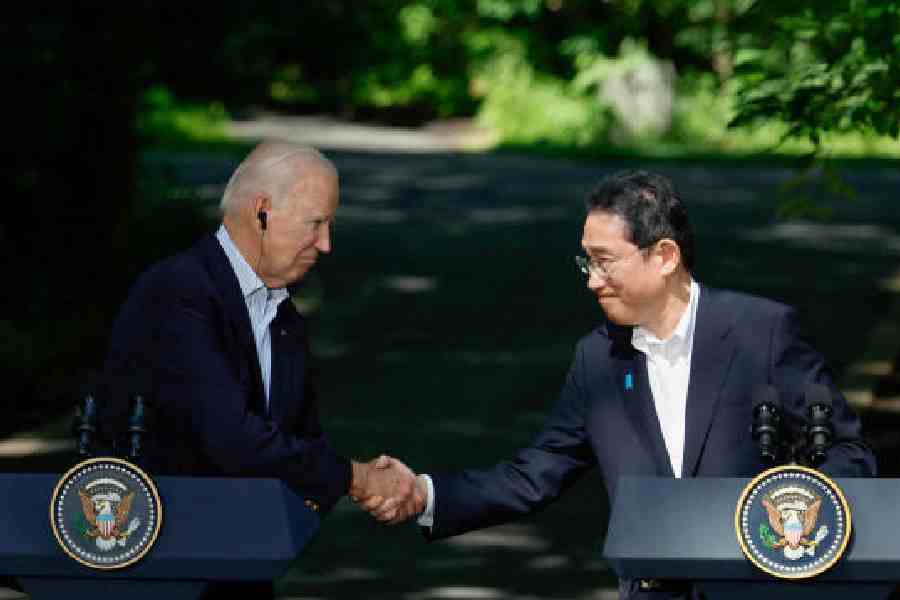When US President Joe Biden welcomes Japan Prime Minister Fumio Kishida to Washington this week for a visit highlighted by the pomp of a state dinner, there will be an inescapable subtext to all the ceremony: Both leaders are in a fight to keep their jobs.
With Biden facing a tight reelection contest with his predecessor and Kishida’s approval ratings falling to record lows amid a political scandal, the leaders are expected to discuss ways to entrench their countries’ alliance so it remains strong even if they are no longer around to nurture it.
The goal is to “create a situation where no one can unbind their ties”, said Narushige Michishita, a professor of international relations at the National Graduate Institute for Policy Studies in Tokyo.
The risk of drastic change appears to be much higher on the American side. Japanese officials, lawmakers and media outlets have taken to referring to “moshi Tora” (if Trump) or even “hobo Tora”, which roughly translates to “probably Trump”, using an abbreviation of the name of the former President and current Republican candidate.
Given Donald Trump’s unpredictable behaviour and his transactional view of international alliances, Japanese officials are bracing for possible swings
in American foreign policy.
On the Japanese side, even if Kishida does not survive a leadership election this fall in his own party, it will still control the government at least until the next general election and probably beyond that — meaning any big changes in Tokyo’s policy commitments are unlikely.
At the summit this week, during which Kishida will also address a joint session of Congress, the leaders are expected to talk about closer military cooperation between US forces based in Japan and their Japanese counterparts; collaborations on artificial intelligence, space technology and semiconductors; and the potential for Japan to make and export more weapons to the US.
The military cooperation in particular “smells of future-proofing”, said Tobias Harris, founder and principal of Japan Foresight, a political risk advisory firm in Washington.
During the Trump presidency, the relationship between the two countries withstood some turbulence as Shinzo Abe, Japan’s Prime Minister at the time, went to great lengths to court Trump’s favour.
Biden has worked with two Japanese leaders — Yoshihide Suga, the successor to Abe, who was assassinated in 2022, and Kishida — to restore and expand the alliance while also developing stronger bonds with other partners in Asia to counter China’s rising power.
Last summer, Biden hosted Kishida and his South Korean counterpart, Yoon Suk Yeol, at the President’s first meeting with foreign leaders at Camp David. This week, Biden and Kishida will meet with President Ferdinand Marcos Jr. of the Philippines in the first trilateral session between leaders of those three countries.
New York Times News Service











